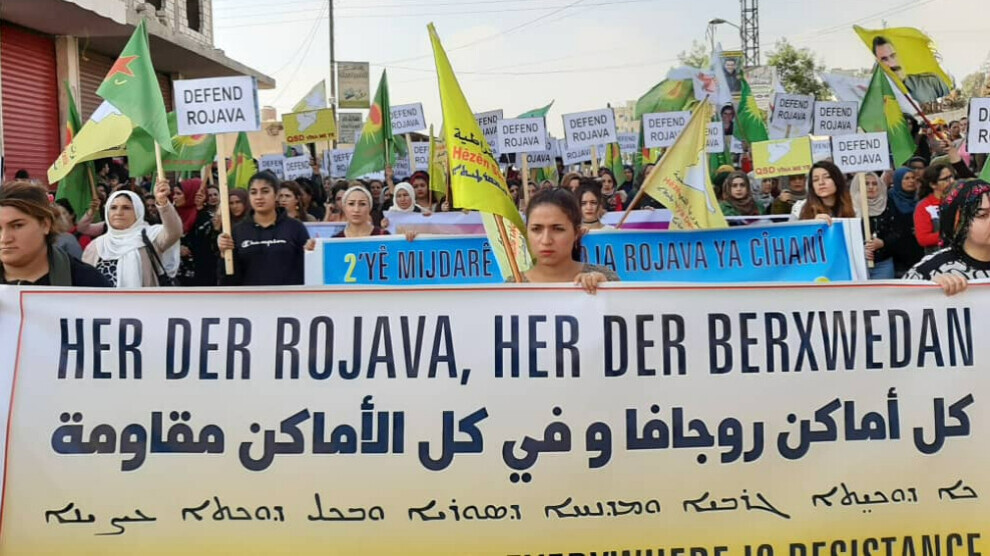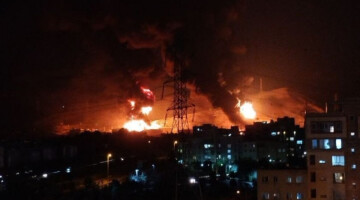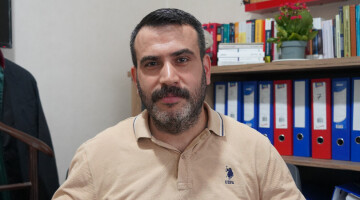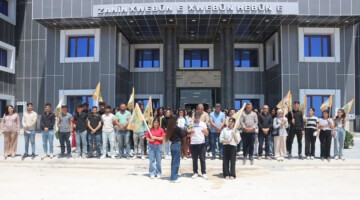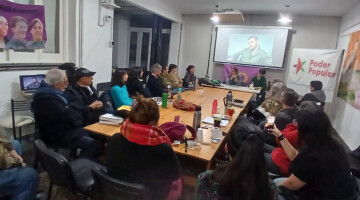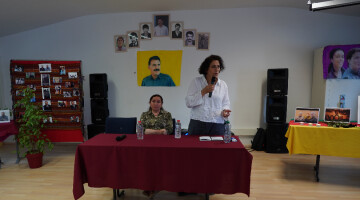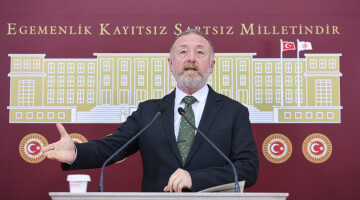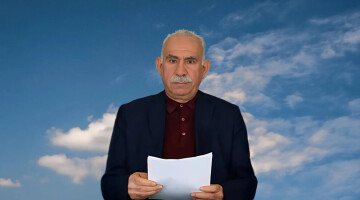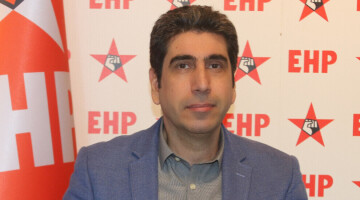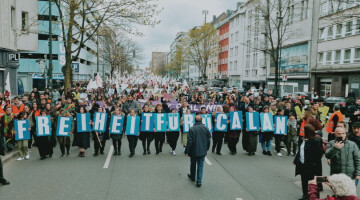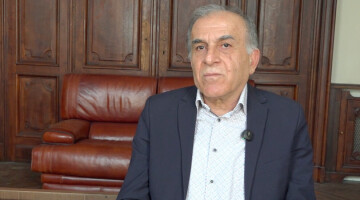The Turkish state signalled its will for a new comprehensive invasion attack on 1 June 2022.
The Turkish state's attacks on Rojava are an attack on the Kurdish people's struggle for existence. The 30-kilometer-deep into Rojava that Turkey wants to occupy, and shown at the United Nations session, made its agenda clear. The UN's silence about this invasion plan also points to the existence of forces actually backing this plan.
Long-term people preparation for war
Undoubtedly, the peoples of Northern and Eastern Syria immediately took action against this comprehensive invasion plan. They declared that they would not tolerate the occupation of new Afrin, Serêkaniyê and Girê Spî, nor would they give Turkey an opportunity to go ahead with the plan. Great preparations are being made in the region within the scope of the Revolutionary People's War. This means that people take part and wage war. The inspiration for this strategy, which was determined as a long-term people's war in the past, was the Vietnamese and Chinese revolutions. In national liberation struggles such as Algeria, the active participation of the people in the war, the end of the sovereignty of the occupying-colonial states and their victory in a long period of war made this strategy a basic strategy of struggle for the oppressed nations. A colonial nation which is in a weak position and unorganized, will ensure its organization during the long war process and will protect its country. The colonial power will gradually weaken and the colonial nation will be able to uproot the colonial power from the country with an uprising.
Dimensions of the revolutionary people’s war
The people's war consisted of various phases: strategic defense, strategic balance and strategic offensive.
The revolutionary people's war has various dimensions. These dimensions consist of professional armed forces, armed self-defense forces, and the people. The countryside, and perhaps more, urban centers are the places where the revolutionary people's war will be focused and waged. Here, the professional armed forces, the self-defense force and the people wage war together and in coordination. While the armed professional forces deal effective blows to the enemy, the self-defense forces participate in the war by striking the enemy in unexpected places behind the front lines. With the active participation of the people, the enemy is defeated. Success is achieved by ensuring the participation of the people. Eliminating the inadequacy of keeping people out of war in past processes is the basic approach of the revolutionary people's war.
Everyone is involved, from shopkeepers to doctors
Treating the people as a separate dimension should not mean treating them as if they were separate from the armed forces and self-defense forces. In fact, these forces are those that come out of the heart of the people. However, armed forces such as the YPG-YPJ are all-time professional forces. They do not have any other activity. There is also semi-professional self-defense forces like HPC. Along with their own work, they participate in the defense of the people. The general mass is at work, at home, in education, in the office of the civil servant, in the workplace, in the fields, but they participate in the revolutionary people's war without interrupting their work. That's where their strength comes from.
The effect of 40 years of guerrilla resistance
Guerrilla warfare has been waged in Kurdistan for nearly 40 years. A highly effective guerrilla army has been established. It was also true that a limited part of the people took part in this war as a 'militia'. There are also experiences in the self-management process. This process was mainly carried out by youth and armed professional forces. There was no direct and sufficient participation of the public in this process. The people expected the guerrillas, who were "their own children", from their armed forces to defeat the enemy.
A revolution has taken place in Rojava as well. Almost all the cities of Rojava were taken out of the control of the Syrian regime, and the people themselves assumed the administration. We saw how enthusiastically the people participated in the revolution and their place in the efforts to defend the country against ISIS.

